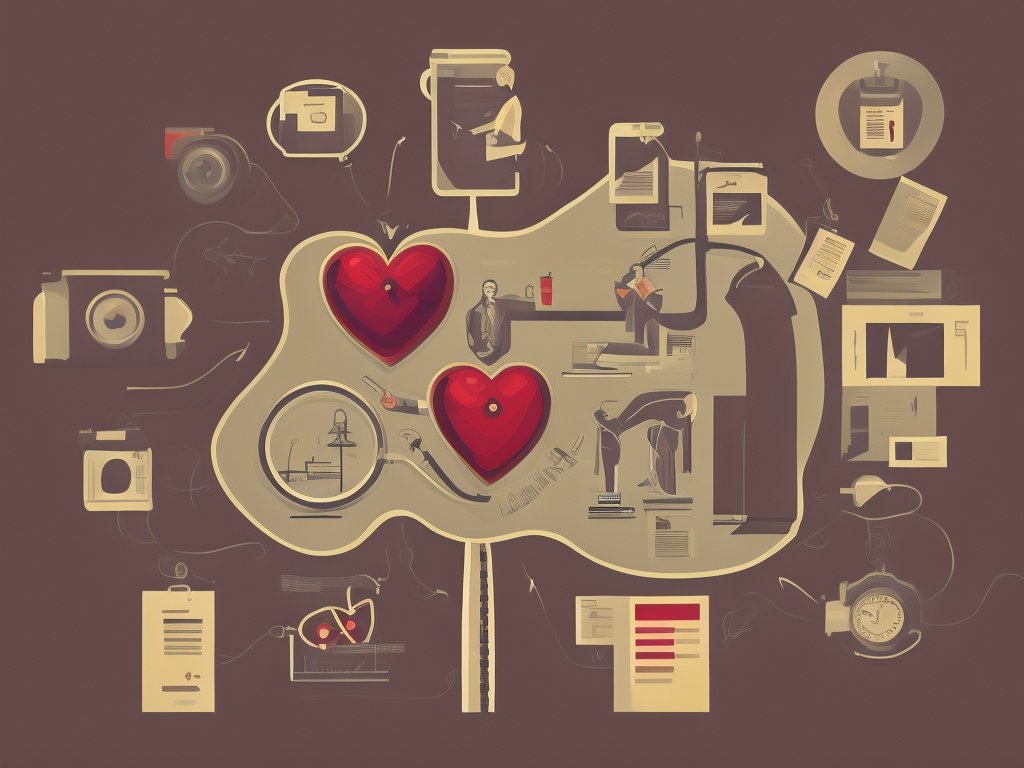
Maintaining optimal health in our golden years requires vigilance, particularly when it comes to managing conditions like hypertension. As we age, our bodies undergo various physiological changes that can increase the risk of developing high blood pressure. However, with the right strategies and a proactive approach, we can effectively manage hypertension and enjoy a better quality of life.
| Key Facts about Hypertension in the Elderly | Importance |
|---|---|
| Increased Prevalence | Hypertension affects over 60% of adults aged 65 and older, making it a common health concern in the elderly population. |
| Elevated Risks | Uncontrolled hypertension in the elderly can lead to serious complications, including stroke, heart disease, and kidney damage. |
| Unique Considerations | Managing hypertension in the elderly requires a tailored approach due to factors like comorbidities, medication interactions, and physiological changes. |
What is Hypertension?
Hypertension, commonly known as high blood pressure, is a chronic condition characterized by an elevated force of blood pushing against the walls of the arteries. In the elderly population, hypertension is particularly prevalent, with over 60% of adults aged 65 and older affected. As we age, our blood vessels can become less flexible, leading to increased resistance and higher blood pressure readings. This condition, if left unmanaged, can significantly increase the risk of cardiovascular events, such as heart attacks, strokes, and kidney disease.
Identifying Risk Factors in the Elderly
Recognizing the risk factors associated with hypertension in the elderly is crucial for effective management. Some of the key factors include: – Aging: As mentioned, the natural aging process can contribute to the development of hypertension. – Sedentary Lifestyle: A lack of physical activity can lead to weight gain and other health issues that exacerbate high blood pressure. – Comorbidities: Conditions like diabetes, kidney disease, and obesity can increase the risk of hypertension in the elderly. – Medication Side Effects: Certain medications, such as corticosteroids and decongestants, can potentially raise blood pressure.
By identifying these risk factors, healthcare providers can develop targeted strategies to mitigate the impact of hypertension in the elderly and promote overall well-being.
Monitoring Blood Pressure Effectively
Consistent and accurate blood pressure monitoring is essential for managing hypertension in the elderly. Healthcare providers may recommend the use of home blood pressure monitoring devices to help patients track their readings on a regular basis. This approach can be particularly beneficial for the elderly, as it can help identify white coat hypertension (elevated blood pressure in a clinical setting) and orthostatic hypotension (a sudden drop in blood pressure upon standing).
The Role of Lifestyle Modifications
Implementing lifestyle changes is a cornerstone of managing hypertension in the elderly. These modifications can include: – Dietary Adjustments: Reducing sodium intake, increasing potassium-rich foods, and incorporating the DASH (Dietary Approaches to Stop Hypertension) diet can help lower blood pressure. – Regular Exercise: Engaging in regular physical activity, such as brisk walking, swimming, or low-impact aerobics, can help improve cardiovascular health and reduce hypertension in the elderly. – Stress Management: Incorporating stress-reducing techniques, like meditation, deep breathing, or tai chi, can help mitigate the negative effects of stress on blood pressure.
By adopting these lifestyle changes, elderly individuals can play an active role in managing their hypertension and improving their overall well-being.
Medication Management for Hypertension
In addition to lifestyle modifications, medication management is often necessary for effectively controlling hypertension in the elderly. Healthcare providers may prescribe a variety of antihypertensive medications, including: – Diuretics: These medications help the body eliminate excess fluid, reducing the workload on the heart and lowering blood pressure. – ACE Inhibitors: These drugs work by relaxing blood vessels and improving blood flow. – ARBs (Angiotensin II Receptor Blockers): These medications also help relax blood vessels, leading to lower blood pressure. – Calcium Channel Blockers: These drugs prevent calcium from entering the muscle cells of the heart and blood vessels, causing them to relax and dilate.
Careful medication management is crucial, as the elderly may be more susceptible to medication interactions and side effects. Regular monitoring and close collaboration with healthcare providers are essential for achieving optimal hypertension management in the elderly.
Addressing Comorbidities and Interactions
Elderly individuals with hypertension often have comorbidities, such as diabetes, kidney disease, or heart failure. Managing these concurrent conditions is crucial, as they can significantly impact the treatment and control of hypertension in the elderly. Healthcare providers must carefully consider medication interactions and potential side effects when prescribing antihypertensive drugs for this population.
Dietary Approaches to Lowering Blood Pressure
Dietary modifications play a vital role in managing hypertension in the elderly. The DASH (Dietary Approaches to Stop Hypertension) diet is a well-established, evidence-based approach that emphasizes the consumption of fruits, vegetables, whole grains, and lean proteins. This diet is particularly effective in reducing sodium intake, which is a key factor in controlling blood pressure. Additionally, increasing potassium-rich foods, such as bananas, leafy greens, and beans, can help counteract the effects of sodium and further lower blood pressure.
Importance of Regular Exercise
Engaging in regular physical activity is crucial for managing hypertension in the elderly. Even moderate-intensity exercises, such as brisk walking, swimming, or low-impact aerobics, can help improve cardiovascular health and lower blood pressure. Healthcare providers may recommend a tailored exercise program that takes into account the individual’s physical abilities, comorbidities, and overall health status. Consistent exercise can also help the elderly maintain a healthy weight, which is another important factor in hypertension management.

Stress Reduction Techniques
Chronic stress can have a significant impact on blood pressure, particularly in the elderly population. Incorporating stress reduction techniques, such as meditation, deep breathing exercises, or mindfulness-based practices, can help mitigate the negative effects of stress on hypertension in the elderly. These techniques can promote relaxation, improve mood, and support overall well-being, ultimately contributing to better blood pressure control.
Navigating Healthcare Challenges
Managing hypertension in the elderly can present unique healthcare challenges, such as medication adherence, access to care, and navigating the complex healthcare system. Elderly individuals may face barriers, such as limited mobility, cognitive impairments, or financial constraints, that can hinder their ability to consistently monitor their blood pressure and adhere to their treatment regimen. Healthcare providers must work closely with patients and their caregivers to address these challenges, ensuring that the elderly receive the necessary support and resources to effectively manage their hypertension.
Empowering Patients through Education
Educating elderly individuals and their caregivers about hypertension management is crucial for achieving optimal outcomes. Healthcare providers should take the time to explain the importance of regular blood pressure monitoring, the role of lifestyle modifications, and the proper use of antihypertensive medications. This education can empower patients to take an active role in their healthcare, fostering a sense of self-management and improving overall medication adherence.
Optimizing Long-Term Outcomes
Effective management of hypertension in the elderly is essential for promoting long-term health and preventing serious complications. By implementing a comprehensive approach that combines lifestyle changes, medication management, and regular monitoring, healthcare providers can help elderly individuals maintain optimal blood pressure control and reduce their risk of cardiovascular events, kidney disease, and other hypertension-related complications. Ongoing communication, monitoring, and adjustments to the treatment plan are crucial for ensuring the best possible long-term outcomes for the elderly population.
Conclusion
Managing hypertension in the elderly requires a multifaceted approach that addresses the unique physiological changes and healthcare challenges faced by this population. By implementing lifestyle modifications, medication management, and regular monitoring, healthcare providers can help elderly individuals with hypertension achieve optimal blood pressure control and improve their overall quality of life. Empowering patients through education and addressing comorbidities and medication interactions are also crucial components of effective hypertension management in the elderly.
Frequently Asked Questions
What are the most common risk factors for hypertension in the elderly?
The primary risk factors for hypertension in the elderly include aging, sedentary lifestyle, comorbidities (such as diabetes and kidney disease), and certain medications that can raise blood pressure. Healthcare providers must carefully assess these risk factors to develop a comprehensive management plan.
How can home blood pressure monitoring benefit the elderly with hypertension?
Home blood pressure monitoring can be particularly beneficial for the elderly with hypertension as it can help identify white coat hypertension (elevated blood pressure in a clinical setting) and orthostatic hypotension (sudden drop in blood pressure upon standing). This approach allows for more accurate and consistent tracking of blood pressure readings, enabling healthcare providers to make more informed treatment decisions.
What are some effective stress reduction techniques for managing hypertension in the elderly?
Incorporating stress reduction techniques, such as meditation, deep breathing exercises, and mindfulness-based practices, can help mitigate the negative effects of stress on blood pressure in the elderly population. These techniques can promote relaxation, improve mood, and support overall well-being, ultimately contributing to better hypertension management.

